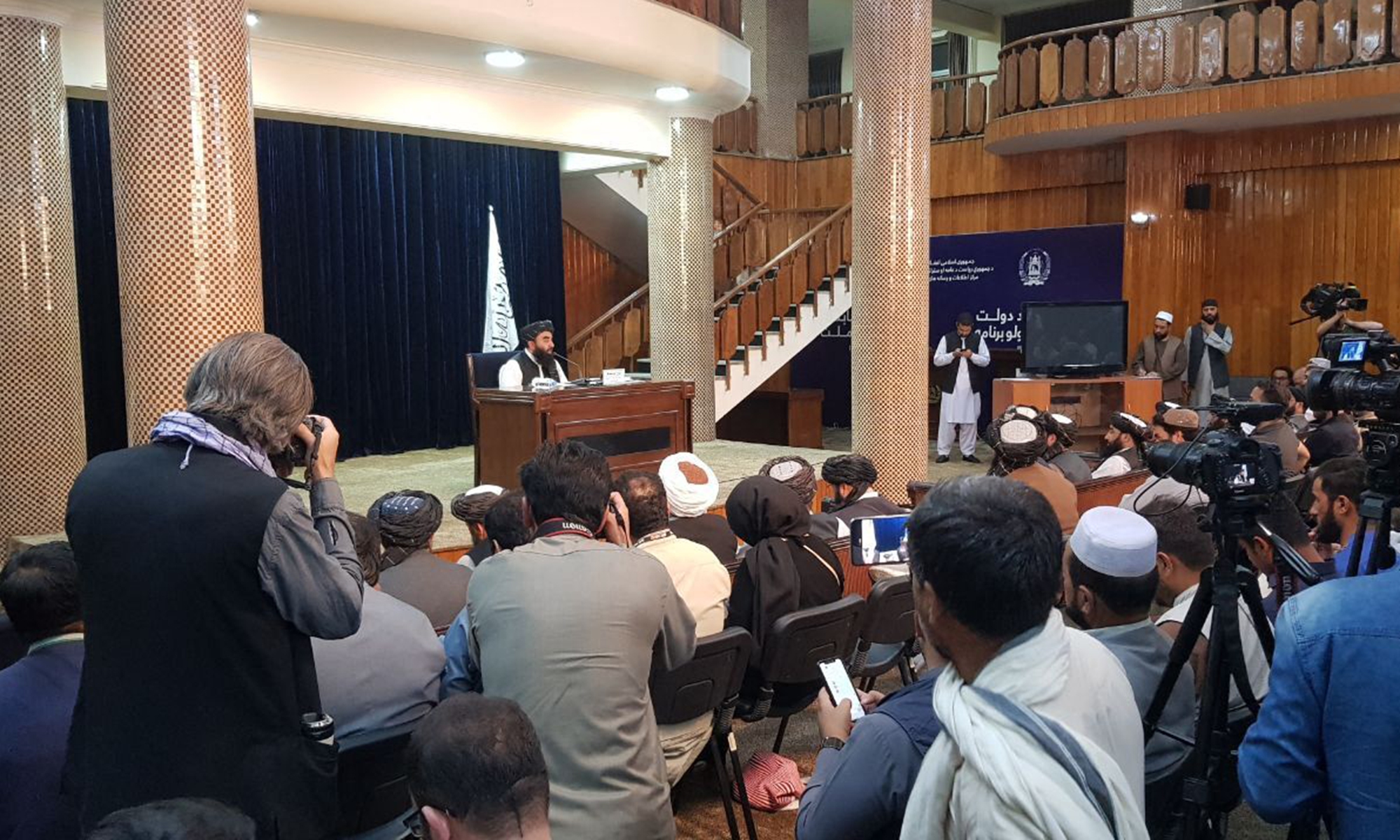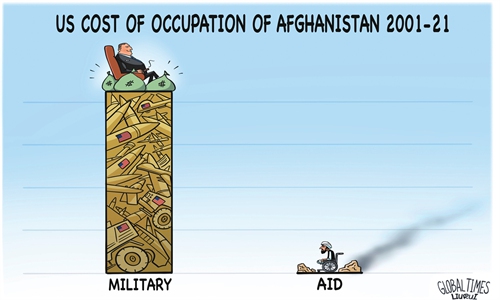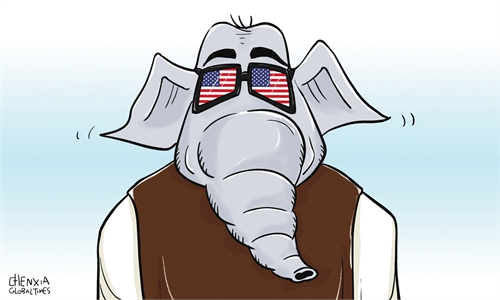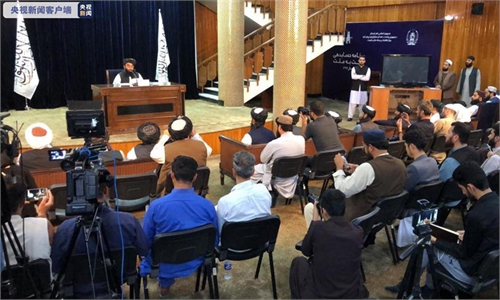
Taliban spokesperson Zabihullah Mujahid holds a press conference in Kabul, Afghanistan on Tuesday. Mujahid announced the new government to rule the country. The Taliban announced Mullah Mohammad Hasan Akhund as the interim leader, while giving key positions to some of the movement's top officials. Photo: AFP
The Taliban on Tuesday announced the first members of its new interim government. Some senior members of the Taliban have been appointed to key positions. Mullah Hassan Akhund was named prime minister of Afghanistan's caretaker government. Mullah Abdul Ghani Baradar, who visited Tianjin in late July, was named acting deputy prime minister. Sarajuddin Haqqani, who the FBI has a $10 million bounty on, was named the acting interior minister.
Some Western media said it does not show an inclusive leadership as the Taliban promised. But the Taliban said they are merely the first members of its new interim government. Whether there will be other political forces serving as ministers in non-security areas will be the next focus.
The Taliban have repeatedly expressed its trust in China in recent days and hope China will participate in Afghanistan's reconstruction, but it has also offered olive branches to the US and the West. Taliban's willingness to rebuild domestic economy and its own image has been clear to the world. But the Taliban regime may have a long way to go before it can live up to Western standards on issues such as human rights and win US support and even diplomatic recognition.
As China faces a comprehensive test of how to deal with the Taliban, our Afghan policy will be a focus of international attention. The Chinese people must understand first that it is to China's advantage that the Taliban have made a gesture of goodwill. This is the result of China's insistence on prudent and steady foreign policy as well as its powerful national strength. The hostility against the Taliban from the US should not create a diversion in our policy toward Afghanistan.
It is in China's national interests to proactively influence Afghanistan's reconstruction route to promote peace in that country, firmly keep it away from terrorism, and make it adopt a moderate, inclusive, and prudent social policy. However, such an influence will not be gained by intervention. Instead, we should let the interests drive us and ensure that we don't fall into any trap. Mutual respect and mutually beneficial cooperation must be the general logic of China-Afghanistan relations.
The US and other Western media will continue to make noise about the relationship between Beijing and Kabul. The mentality behind them is quite complex. The US suffered a major defeat in Afghanistan, so it is ashamed, annoyed, and jealous of China. It can be said that Washington still hasn't had a clear idea of how to deal with Kabul in future.
There have been sensational discussions in the US about China filling the "vacuum" left by the US withdrawal from Afghanistan. On the one hand, they worry if China could expand its influence in Afghanistan. On the other hand, they hope that Afghanistan will be the "graveyard of China." Recently, they have been mentioning the "Eastern Turkistan Islamic Movement" a lot. What they truly anticipate is that the issue of this group can create obstacles to the relationship between China and the Afghan Taliban and even lead to a series of conflicts between the two.
As long as China is clear-headed and seeks truth from facts, it can manage its relations with Afghanistan under Taliban's rule. It will not only keep the red line including counter-terrorism, but also open up new space for China-Arab relations that serve China's long-term interests.
The US has spent over $2 trillion in Afghanistan. As a matter of fact, the money was not spent on Afghanistan, but on Washington's own ambitions. Even if China includes Afghanistan in its Belt and Road Initiative, China's investment will be limited. China has no geopolitical ambitions in Afghanistan, so we cannot be as greedy and stupid as the US in Afghanistan.
The US recently suspected that China was about to "take over" its Bagram airfield in Kabul, expressing its sour feelings. This idea of "takeover" is the typical American way of thinking about intervention. The Chinese people understand the Afghan people's feelings to resist foreign troops. China will not go into Afghanistan as the US troops did to "acquire" an airbase that may cost it large amounts of money, turning Afghanistan into "China's problems."
Afghanistan is a neighbor of China, and where the situation heads there does concern China's interests. But we are willing to believe that China's Afghan policy, from design to implementation, will be penetrated with the wisdom and prudence of the Eastern power, and it will beyond the imagination of many Western elites.



